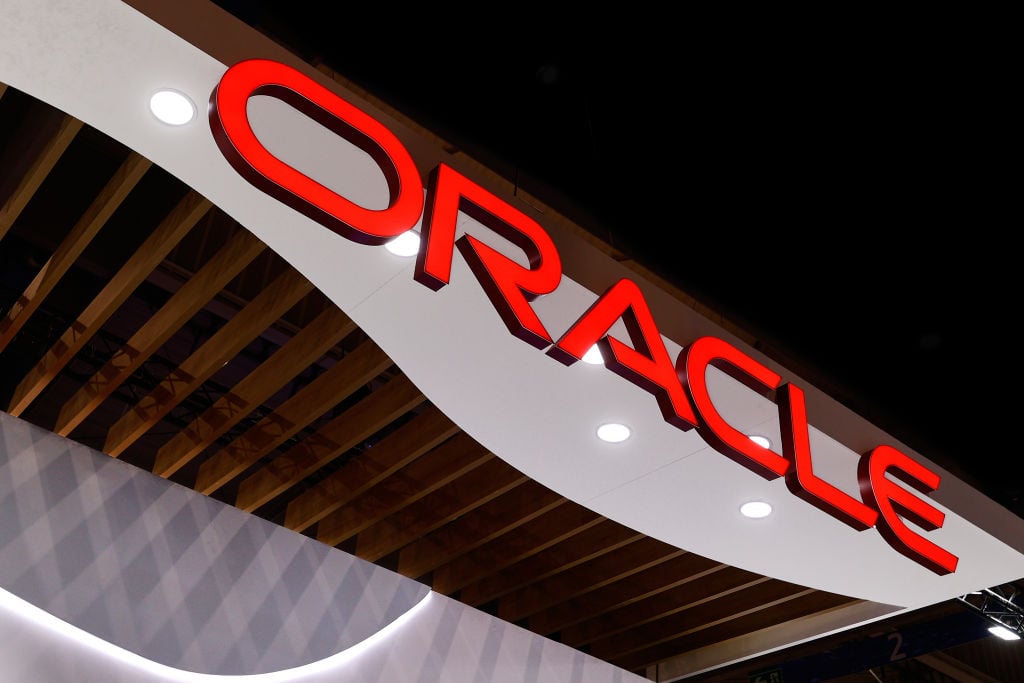For the second quarter in a row, database giant Oracle (ORCL 2.62%) reported mixed results and provided guidance that fell short of expectations. The company's cloud business is growing, but other parts of the business are in decline. Total revenue grew by just 2% adjusted for currency in Oracle's first quarter , and the company expects growth between 0% and 2% in the second quarter.
Despite this sluggish growth and a cloud strategy that's heavy on bombast and light on market-share gains, Oracle believes its stock is "an unbelievable buy," according to co-CEO Safra Catz on the company's first-quarter earnings call. The company poured nearly $10 billion into share buybacks during the first quarter alone, and it authorized another $12 billion for additional share buybacks.
Rapid-fire share buybacks aren't a bad thing when a stock is cheap. But shares of Oracle don't look like a great deal to me.

Image source: Getty Images.
Buybacks and taxes
On a non-GAAP basis, Oracle's first-quarter earnings per share rose by 18% year over year to $0.71. That sounds like a great result, and that kind of earnings growth rate makes paying around 16 times non-GAAP earnings for the stock seem pretty reasonable.
But strip out the effects of Oracle's extensive share buybacks and a lower tax rate, and the bottom line barely budged. GAAP operating income rose by just 1% in the first quarter, or 3% adjusted for currency. Oracle's tax bill plunged 23% year over year, and the total diluted share count dropped by about 6.7%. Those two factors accounted for the bulk of Oracle's per-share earnings growth.
Oracle is benefiting from the tax bill passed in late 2017. While the company will continue to pay a lower tax rate in future years, the benefit to earnings growth is temporary. Once Oracle laps the drop in its tax rate, this earnings growth tailwind disappears.
Oracle will likely continue to pour cash into share buybacks, but it can't keep up the rate it achieved during the first quarter for long. Oracle's free cash flow was about $13.7 billion in fiscal 2018, compared to $10 billion in buybacks in the first quarter alone. Oracle has about $60 billion of cash on the balance sheet, but it has almost as much debt as well.
Not an unbelievable buy
Paying 16 times non-GAAP earnings for a company growing earnings at a double-digit rate makes sense. But Oracle's 18% earnings growth rate in the first quarter comes with asterisks. Underlying operating income only grew by a low single-digit percentage, just barely faster than revenue adjusted for currency.
It's not that Oracle stock is expensive. The S&P 500 trades for around 18 times estimated earnings for the 12-month period ahead, so Oracle isn't trading at a premium to the market. But it probably doesn't deserve a premium, given its sluggish growth rate. And it's certainly not "an unbelievable buy."
Oracle still dominates the market for database software, and its entrenched position and massive switching costs are key competitive advantages that will make dethroning the company difficult, if not impossible. But I don't think Oracle is anything more than an average investment.






